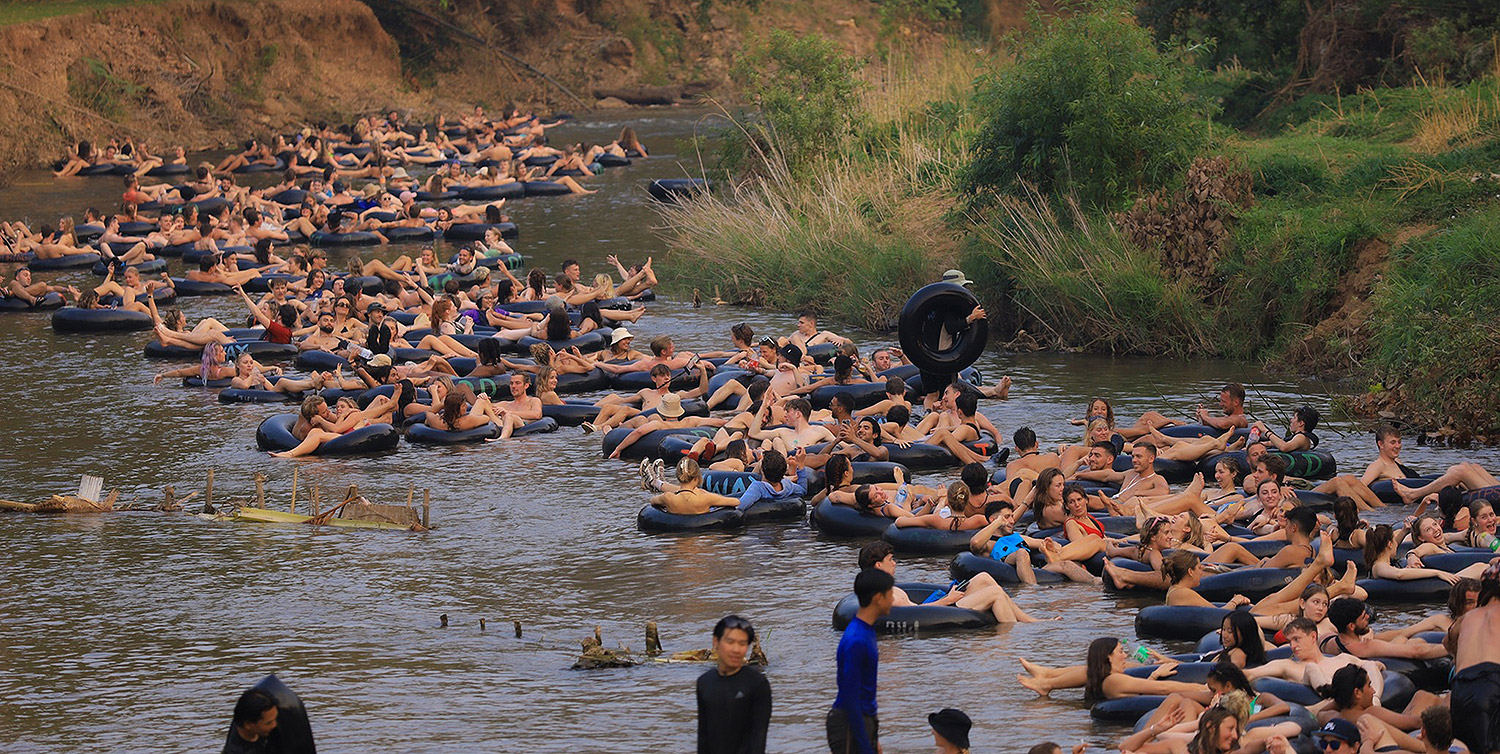
As responsible tourism becomes more popular in reaction to the Covid-19 outbreak, which paints a clear picture of sustainable living, local residents and business owners in popular tourist destinations have learned how to combine the means of generating money and conserving their environment.
I recently visited Koh Tao, where I learned that the island receives around 40,000 visitors a month on average, indicating a recovery in tourism since Thailand completely opened its borders late last year. After observing the island's piers jammed with thousands of Thai and foreign visitors, the thought "How does this island deal with such a huge number of tourists?" immediately popped into my head.
My trip took place during the second Spotlight Koh Tao event, which aimed to promote the island as a green tourism destination and increase environmental consciousness among tourists and locals. This year, it was a collaboration between the Koh Tao Tourism Association, the Tourism Authority of Thailand, the private sector and local communities.
According to Tanes Petsuwan, TAT deputy governor for international marketing in Asia and South Pacific, the tourism sector has greatly rebounded since the second part of last year. In 2017 and 2018, Koh Tao attracted almost 600,000 tourists and divers. Currently, this island receives close to 300,000 visitors, with 500,000 expected by the end of the year. Things may return to normal next year.
Between 2017 and 2019, 30% of divers came from China, followed by England, Germany, France, and the United States. With hope for the future, Koh Tao will remain a small island that manages to balance the quantity and quality of visitors without endangering the natural ecosystem. While visiting the island, visitors may spend around 10,000 baht per person and may significantly contribute to the well-being of this small community.
Tanes said that the Koh Tao community actively works together to protect and take care of their home and natural beauty, while the TAT changed perspectives on promoting tourism after the Covid-19. Although the concept of responsible tourism has been around for a while, there may not be many actual initiatives.
Before Covid-19, Thailand's tourism had some negative press. As a result, we are concentrating on the foreign independent travel market. TAT will act as a mentor, educator, or doctor to aid in striking a balance between expansion and value as the tides of tourists flood in. The community of Koh Tao is strong and is aware of its path.
The island is today teeming with leisure-related businesses like posh boutique resorts, bungalows, travel agencies, bistros and cafes. It's not easy for islanders to preserve their charming culture as tourism may help enhance the quality of their lives.
"Koh Tao promotes itself as a green island and seeks to live in nature. Visitors must study and adjust themselves in order to stay here since locals won't change their way of life. Future tourism should look like this. Bali in Indonesia is a good example since it has managed to preserve its culture and way of life," Tanes said.
For several years, the growth of the diving industry has had an influence on the local fishing community and some people feel it is harming the coral reef and marine ecosystem. To foster harmony on the island, experienced fisherman Charoensook Sookphon and his friends are working hard to advance understanding of conventional fishing methods, which involves using a fishing pole and developing fish aggregating devices in a marine setting. It's different from fishing nets, which may wrap around coral reefs and create marine waste.
When Koh Tao's natural beauty is its main selling point, effective tourism management should be a key priority. Koh Tao has 64 diving schools and has been noted for its marine richness, making it one of the most popular snorkelling and scuba diving sites in Thailand.
While I was snorkelling, I noticed some foreign tourists trying to approach and chase a giant green turtle in order to take underwater pictures to post on social media. The turtle slowly made his way away from the group before a guide quickly moved people away.
My buddies and I decided to keep our distance from that scenario and study from afar both the behaviour of the tourists and the aquatic wildlife. Again I found myself pondering: "This is the world of marine life, it is right to disturb the owner of the house?"
Koh Tao, however, is not part of a national park, making it challenging to control and monitor visitors. Therefore when tourism is a universal activity, it relies on our conscious mind.
Pattarawadee Saengmanee is a feature writer for the Life section of the Bangkok Post.







